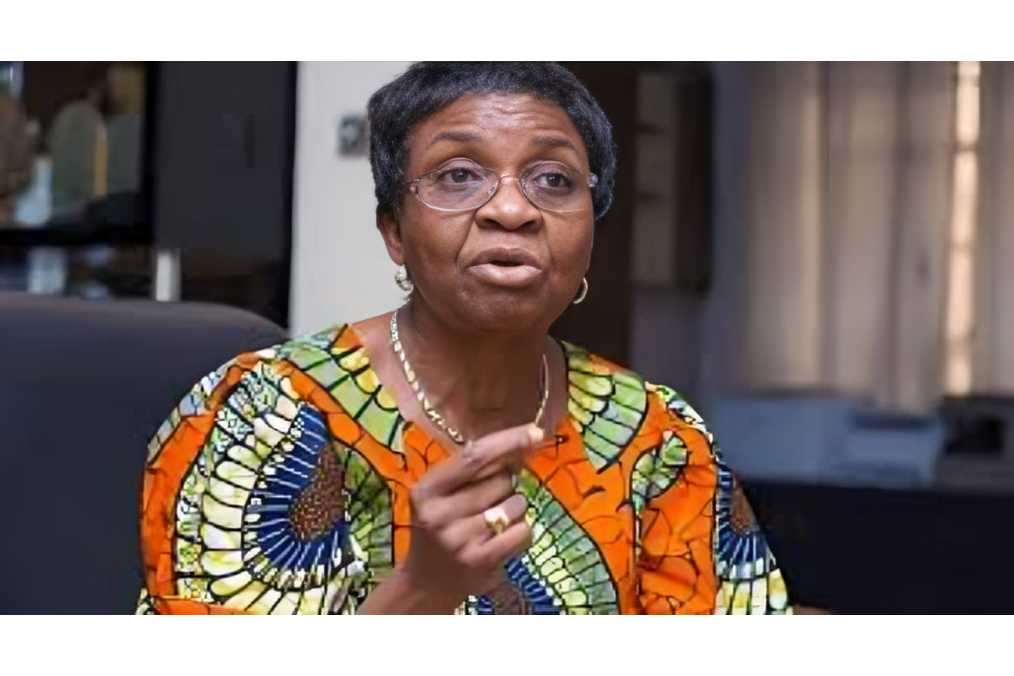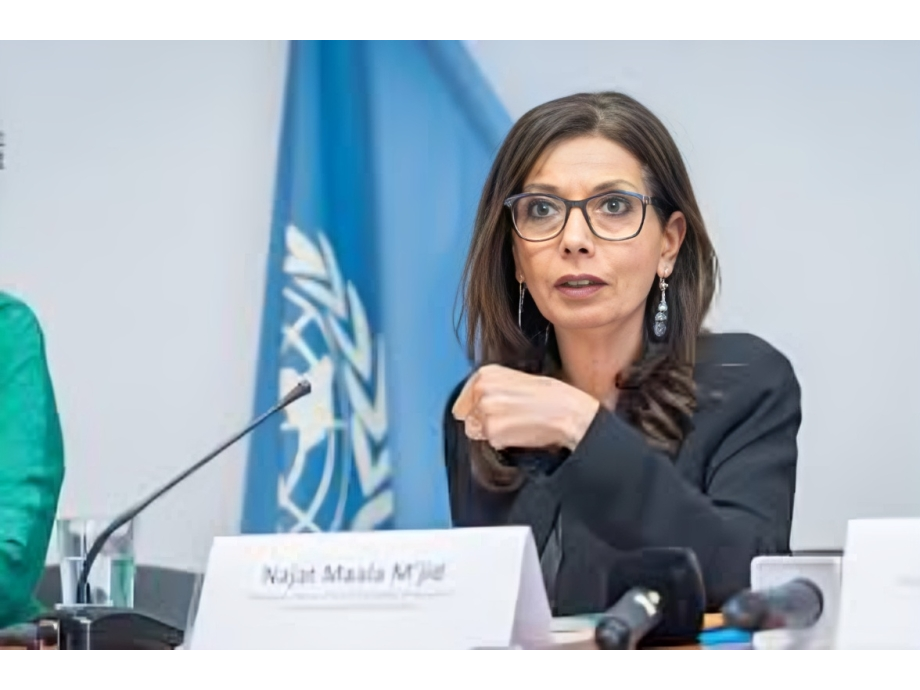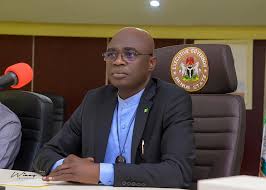Health
FCTA Raises Alarm over 1.4m Infected with Malaria in 2024

By Laide Akinboade, Abuja
The Federal Capital Territory Administration, FCTA, on Tuesday raised alarm over 1.4 million people in Abuja, had malaria in 2024.The Mandate Secretary of the FCT, Health Services and Environment, Dr. Adedolapo Fasawe who disclosed this, at the flag off of unbundling and distribution of malaria drugs and free test kits.
She said that is about 25% of the whole population in Abuja . She said malaria remains a killer of children under five and women. “Only one thing causes malaria, which is mosquito. If we can eliminate mosquitoes, we can eliminate malaria. However, the network of roads provided by the FCT Minister, Nyesom Wike have provided access to communities during emergencies. “Today, we have taken a decisive and deliberate action to fight malaria. Malaria remains a leading a cause of death among children under five and women. “Nigeria is responsible for 27 percent of global malaria prevalence, the highest figure in the world. A survey carried out by the World Health Organisation, WHO in 2024 says 1.4 million people of the population of FCT suffer from malaria. The FCT is between 5 to 6 million population, making it 5 percent of malaria prevalence.”Fasawe said Wike paid up the counterpart funding for FCT last year which enabled them to participate in the programme this year. She said the fight against malaria is a fight for life as in every five minutes, a child dies of malaria in Nigeria. “ We want to kick out malaria from the FCT and Nigeria as a whole.”She said that they have decided to completely eliminate malaria and that they are providing free test kits and free treatment with medicines.She also noted that a survey in 2024 shows that 60 percent of children presented in the FCT presented clear cases of of malaria. Assuring that all public health facilities in the FCT have been given free health kits and free drugs and that any facility found selling would be sanctioned. Also insecticide treated nets have been made available for distribution to pregnant women and nursing mothers. She reiterated that, malaria is a preventable cause of death and that treatment will reduce drastically cases of malaria. “The duration of the programme would be for two years while to keep drugs available all through the year, procurement would be carried out as at when needed”, she said. In his contribution, the acting permanent secretary of Health Services and Environment Secretariat, Dr. Abubakar Ahmadu said the programme would improve access to health care and reduce out of pocket money of the people. He urged health care practitioners to make judicious use of the kits and drugs. The representative of Famkris Healthcare Initiative, Dr. Maureen Ugochuku, one of the NGOs partnering with the FCT said malaria remained Nigeria’s most pressing public health challenge. She said the economic toll is equally devastating as households spend scarce resources on treatment, while businesses suffer during malaria attack. The project was co funded by the Islamic Development Bank.General News
NAFDAC Announces WHO Prequalification of Locally Made Syringe

The National Agency for Food and Drug Administration and Control (NAFDAC), says a 0.5ml Auto Disable Syringe produced by Afrimedical Manufacturing and Supplies Ltd, has achieved World Health Organisation (WHO) prequalification.
NAFDAC Director-General, Prof. Mojisola Adeyeye, disclosed this at a news conference on Wednesday in Lagos, describing it as a significant milestone for Nigeria and the West and Central Africa region.
According to Adeyeye, Afrimedical, located in Ogun, is the first indigenous syringe manufacturer in Nigeria—and the entire West and Central Africa—to receive WHO prequalification for its syringes.
She noted that the achievement followed a rigorous process, substantial investment, and technical support and guidance provided by NAFDAC.
“This milestone aligns with the agenda of the President Bola Tinubu-led administration to promote local production of medical products,” she said.
“It is with great joy that I announce that, after a rigorous process, the WHO has prequalified Afrimedical’s 0.5ml AD Syringes.
“They are now eligible for national and international procurement by relevant agencies and organisations.”
Adeyeye added that Afrimedical was now the first manufacturer in West Africa to be recognised by WHO as operating at an acceptable level of compliance with Good Manufacturing Practice (GMP) requirements.
She emphasised that NAFDAC, in its drive to become a world-class regulator, embraced global best practices in all aspects of medical product regulation.
In 2023, only three out of seven indigenous syringe manufacturers in Nigeria were functional, collectively operating at less than 20 per cent of their combined installed capacity of 2.5 billion syringes per year, she revealed.
Adeyeye highlighted NAFDAC’s “5+5” policy, introduced in 2019, which restricted the importation of medicines and devices that could be produced locally.
“Products with five-year registration validity that can be manufactured in Nigeria will be granted one final five-year renewal, after which importation will no longer be allowed,” she explained.
Following NAFDAC’s attainment of WHO Maturity Level 3 in 2023, the agency began engaging international procurement bodies, such as UNICEF’s supply division in Copenhagen, to promote patronage of locally manufactured medical products, including syringes.
The Director-General urged other indigenous manufacturers to emulate Afrimedical’s achievement through collaboration and alignment with NAFDAC’s regulatory goals.
Also speaking at the event, Afrimedical General Manager, Mr Gabi Al-Aridi, described the WHO prequalification as a major milestone for the company, NAFDAC, and Nigeria as a whole.
Al-Aridi praised the federal government’s efforts to support local production and stated that “Afrimedical currently produces about 1.8 billion syringes annually.”
He reaffirmed the company’s commitment to high-quality, locally made medical products and encouraged Nigerians to embrace them to help boost the nation’s economy.
The National Agency for Food and Drug Administration and Control (NAFDAC), says a medical device, 0.5ml Auto Disable Syringe produced by Afrimedical Manufacturing and Supplies Ltd, has achieved WHO Prequalification.
Prof. Mojisola Adeyeye, the Director-General of NAFDAC disclosed this at a news conference in Lagos on Wednesday.
Adeyeye said the company located in Ogun State is the first st local manufacturer of syringes in Nigeria and also in West and Central Africa region to achieve the laudable feat.
She said the company was able to achieve the feat after a thorough arduous process, heavy investment and technical support and guardians by NAFDAC.
The D-G noted that the feat also align with the agenda of the President Bola Tinubu led administration to support local production of medical products in the country.
“it is with great joy and delight that I have the privilege of informing our stakeholders and the public that, after a rigorous process and a lot of investment by Afrimedical, the WHO has prequalified 0.5ml AD Syringes.
“The syringes have now been added to the WHO list of prequalified syringes and are therefore eligible for national and international procurement by relevant agencies and organisations.
“This is undoubtedly the outcome of meaningful collaboration between the company and NAFDAC, and the systematic implementation of NAFDAC policies over the years.
“Afrimedical has become the first manufacturer of syringes to be recognised by the WHO as operating at an acceptable level of compliance with GMP requirements in West Africa,” he said.
Adeyeye said in line with NAFDAC vision to be a world class regulator that ensures only quality and safe regulated products are used in the country, the agency embraced global best practices in all its regulatory functions of medical products.
She added that only three out of the seven indigenous syringe manufacturer were functional in the country in 2023 and they have a combine installed capacity of over 2.5 billion syringes per annum, while functioning below 20 per cent capacity.
She said:”The Agency started laying a foundational policy in 2019 for local manufacturing of medicines such as 5+5 regulatory.
“This directive which ensures that products that were previously imported with five-year registration validity and that can be manufactured in Nigeria are given the last renewal of five years and thereafter prevented from being imported.
“In 2023, after the attainment of WHO Maturity Level 3, NAFDAC engaged UNICEF supply chain in Copenhagen and at a workshop in Lagos to patronize locally manufactured medical products including syringes.
The Director-General, however, encourage other well-meaning local manufacturers of medical products to emulate this feat through harmonization of collective aspiration and synergy of effort with NAFDAC’s relevant directorates.
Speaking also, the General Manager of Afrimedical Manufacturing and Supplies Limited, Mr. Gabi Al-Aridi described the feat as a major milestone for the company, NAFDAC and Nigeria at large.
Al-Aridi, who commended the federal government for promoting local production of pharmaceutical products said the company producing about 1.8 billion syringes per annum.
He reiterated the company dedication to providing high-quality, locally manufactured syringes, while urging Nigerians to embraced locally made syringes to boost the nation’s economy.(NAN)
Health
UN lauds FCT’s Multisector Approach to Ending SGBV

The United Nations has commended the Federal Capital Territory Administration (FCTA) for its multisectoral approach to ending all forms of Sexual and Gender-Based Violence (SGBV).
Dr Najat M’jid, Special Representative of the UN Secretary-General on Violence against Children, gave the commendation in Abuja on Tuesday, when she visited the Awyetu Sexual Assault Referral Centre (SARC).
The SARC, located at Bwari General Hospital was established in 2020 by the British Council on behalf of the European Union under its Rule of Law and Anticorruption (ROLAC) Programme.
The centre was established to provide comprehensive medical, psychological, and legal support to survivors of sexual violence, with a special focus on children and vulnerable populations.
M’jid expressed excitement with the synergy among the different sectors working together to eliminate all forms of SGBV in the FCT.
“I am happy today because of what I have seen – many ministries are onboard supporting the fight against SGBV.
“This is because the problem is not only the problem of FCT Women Affairs; the issues are also in health, in Justice, and in communities,” she said.
She said that she was in the country to understand what was being done to address SGBV, “and how together, we can move forward”.
She added that Nigeria was one of the paths finding countries on ending violence against children.
She also said that the country was very involved and very committed to end all forms of violence against children and had made pledges.
“Visit to Nigeria is to see how we can move ahead, how we can support and how we can achieve set targets from the many commitments the country has made.
“We want to see how we can translate those commitments into concrete services that will prevent and address all forms of violence against children,” she said.
The special representative, however, stressed the need to address the drivers of SGBV, detect and respond to reported cases and ensure that it was not happening again.
She further said: “It is really important to make sure that the victims can be heard, be considered and be seen as victims and make the perpetrators accountable.
“There is also the need to stop justifying violence against children and women through poverty and through social norms”.
Earlier, the Mandate Secretary, FCT Women Affairs Secretariat, Mrs Adebayo Benjamins-Laniyi, pointed out that a multisectoral problem required a multisectoral approach to tackle it.
Benjamins-Laniyi said that a stronger synergy was required among critical stakeholders to deliver critical intervention from the local to the state level, in line with global best practices.
She described M’jid visit as a “positive disruption” that sparked a desire to strengthen partnership and collaboration among the different stakeholders to do more for women and children in the FCT.
The mandate secretary said that the FCT Administration had rolled out plans to reposition the SARC centre to provide quality integrated services to SGBV survivors.
Also, the Mandate Secretary, Health Services and Environment Secretariat, Dr Adedolapo Fasawe, said that M’jid’s visit reaffirmed the global resolve to protect children from violence.
Fasawe, who was represented by the Permanent Secretary in the secretariat, Dr Baba-Gana Adam, added that the visit was very encouraging.
She added that the visit also reinforced the role of sexual assault centre in ensuring access to care, justice, and dignity for survivors of sexual and gender-based violence.
She disclosed that the hospital had continued to sustain the provision of services at the centre when the ROLAC support ended, but amidst numerous challenges.
The mandate secretary, identified some of the challenges as funding for essential drugs and kits, staff training and incentives, inconsistent collaboration with law enforcements, and absence of prevention and community awareness programmes.
Foreign News
WHO: Social Factors Outweigh Genetics In Shaping Global Health

Housing, income, education, and other social conditions have a greater impact on health than genetics or the quality of health-care systems, according to a new World Health Organisation (WHO) study.
The research, set to be presented and live-streamed from Geneva on Tuesday, found that social determinants such as poverty, discrimination, and lack of access to resources account for more than 50 per cent of health outcomes.
These “social determinants of health equity” include the environments in which people are born, live, work, and age, as well as their access to power, money, and opportunity.
“These factors create unjust and avoidable health gaps,” said WHO Director-General Dr Tedros Adhanom Ghebreyesus.
“Billions of people face higher risks of illness and death simply because of the conditions they’re born into or the social groups they belong to.”
Tedros emphasised that much of the global disease and mortality burden was preventable, calling health inequity a result of political and social decisions that global leaders had the power to change





















